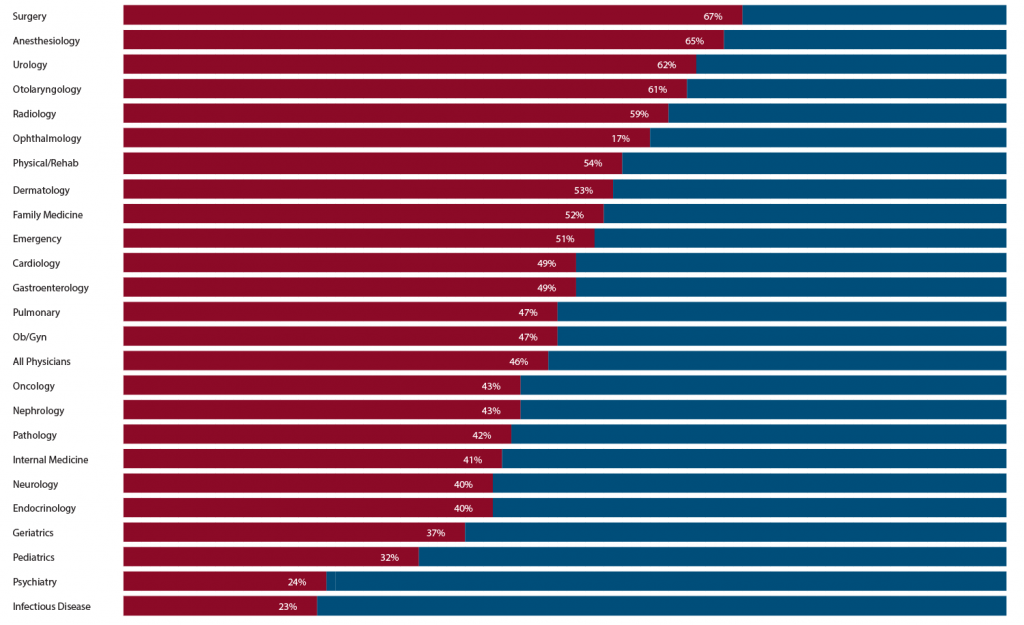The study authors called for a “cultural shift,” in which physicians view voting as a natural extension of their obligations to their patients. “Engineering this shift,” wrote the authors, “begins with promoting civic engagement among trainees—medical students, interns, residents, and fellows—because they are the future of the profession.”
Explore This Issue
November 2018Mary Beth Nierengarten is a freelance medical writer based in Minnesota.
Political Leanings Among Physicians
Recent data show that physicians are basically divided evenly on identifying as Democrat or Republican, with certain specialties leaning as a group more toward one party or the other (New York Times. October 6, 2016).
Party Registration, by Specialty
Physicians in Congress, By the Numbers
- 25 physicians served as members of Congress between 1960 and 2004, accounting for less than 1% of the elected body.
- 27 physicians have been elected to Congress between 2005 and 2015
- 15 physicians now serve in the 115th U.S. Congress.
- 10% of the signers of the Declaration of Independence were physicians
- 5% of members of the first 100 years of Congress were physicians.
Sources: JAMA. 1983;249:929–930; JAMA. 2004;292:2125–2129. South Med J. 2015;108:657–561.
